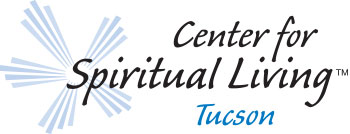I Want That!
We think we know what we want. But do we, really?
Conscious wants are those things we are aware of wanting in our lives. Unconscious wants are those things that we are unaware of wanting, which can include things we say we don’t want. Unconscious wants might be old thought patterns, possibly survival patterns that may or may not serve us any more. They typically have strong emotions attached to them: fear, rage, grief, loss, anger, etc. Metaphysics teaches that a thought plus a feeling yields a demonstration, an outcome. Both the thought and the feeling can be either constructive or destructive. Thought is the filter and emotion is the mechanism that helps create the object of our focus, and both operate with the Principle (the law of choice and consequence) that’s always working.
If an unconscious want is in conflict with a conscious want, and especially if it has strong emotion attached to it, the conscious want is overridden. William James accurately observed, “The unconscious mind rules the world.” As an example, we may consciously desire to be prosperous, but if we have an unconscious belief in the need to struggle, or an unconscious want to prove our lack of deservedness, then the unconscious want neutralizes our potential and our desire for abundance.
Thinking about unconscious wants in the same way we think about conscious wants may seem confusing at first. Consider, “Nothing is hidden that will not be revealed,” from the Bible. An unconscious defamatory want can be viewed as something that wants to be recognized and healed because it is inconsistent with the Truth. Therefore, it reveals itself in order to be recognized and healed. If we add to this, the quote from Job, “What I fear the most is upon me.”, we have another piece of the puzzle. Taken together, we have some clues about the power of unconscious wants.
If we start by viewing experiences and conditions in Life as only feedback, feedback about our thoughts and nothing more, then we can take the emotional intensity out of them. We can choose to look at our experiences simply as information instead of making negative conclusions about ourselves. Our tendency to conclude that our experience is right/wrong, good/bad, etc., or to conclude that we are right/wrong, good/bad, etc., does not really help us. When we pretend that a condition is more than just feedback, we tend to forget that we always have choice, and that we can change our thinking, which is the real cause of the condition in the first place. Our outcomes are nothing more than our own thoughts manifested; however, because of our tendency to judge them, we experience victimhood, suffering, etc. From this shifted viewpoint of “It’s only feedback,” we can look at our experiences as nothing more than feedback and not empower this other stuff.
We are always at choice, have always been at choice and the Law always says “Yes”. Can you recognize and empower what you really want? Obviously, the answer is “Yes” again. So the next question becomes, “Will you?”




